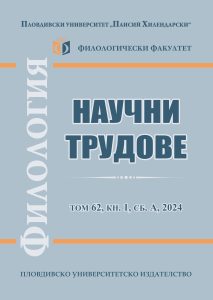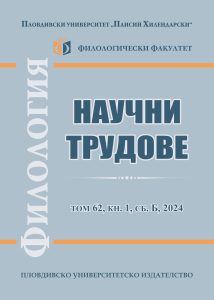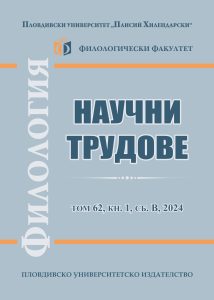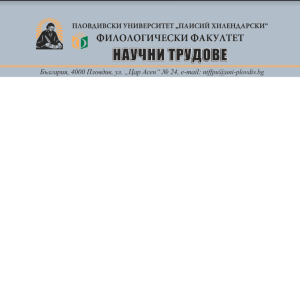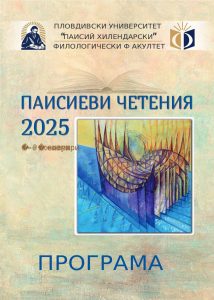VOL. 57, BOOK 1, PART А, 2019, pp. 351 – 364 Full text (Bg)
Author: Bistra Popovska
Affiliation: Paisii Hilendarski University of Plovdiv
Abstract
This paper reports an experiment that examines the production and perception of English compound and phrasal stress. The stimuli for this experiment comprise a list of 18 minimal sets of the pattern classified into 2 types – compound nouns and phrases consisting of an adjective and a noun, such as greenhouse (for plants) and green house (residence). In the production task these minimal sets were recorded in experimental conditions with a minimal pair sentence task by 16 Bulgarian native speakers. In the perception task, the stress in the compounds and phrases was identified and marked by 5 Bulgarian listeners, teachers of English recruited from the university community. The aim of this experiment is to establish whether (and to what degree) Bulgarians have learnt the contrast between English compound and phrasal stress. After processing the results, they showed that the English compounds in the majority of the cases, were stressed according to the English pattern of compound stress. In the case of phrases, however, there was no empirical evidence that the English stress pattern is indeed the way they are pronounced and perceived by listeners.
Key words: compound, phrase, production, perception, English stress pattern, Bulgarian learners of English


